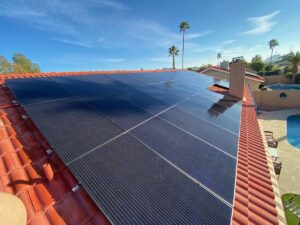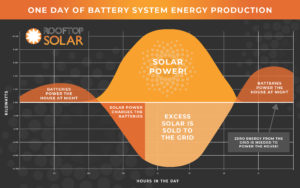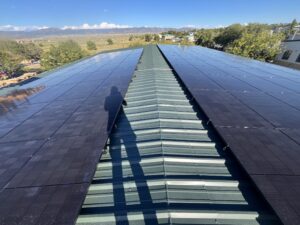A lot of people are talking about solar, and with good reason. It cuts your electric bill, decreases your dependency on the grid, and helps the environment. But one of the main things that you’ve probably heard solar companies, homeowners, and business owners buzzing about is the government incentive.
The Solar Investment Tax Credit (ITC) has been a hot topic in the energy sector for the better part of the last two decades. Originally established in 2005, this dollar-for-dollar tax credit was created to stimulate private and corporate investment in renewable energy and drive down the costs associated with this essential technology. After a period of large-scale success, the ITC was renewed multiple times, and in just 10 years the average Price Per Watt (PPW) for a solar installation has dropped from $8.50/Watt to $2.96/Watt (via EnergySage)!
In fact, solar’s price has fallen so much that it is now cost-competitive when compared to developing new power plants that use fossil fuels (via Forbes). With cost reduction of this magnitude, it is undeniable that the Solar ITC has done its job. However, all good things must come to an end; and with the solar industry developing and thriving, the Solar ITC is not up for renewal after its scheduled phase-out ending 2022.
For the first time in 13 years, the solar ITC dropped this year from 30% to 26%, and it will drop further next year to 22%. After that, the ITC for businesses will remain indefinitely at 10%, while homeowners will lose their tax credit entirely. What does that mean for business owners considering installing commercial solar panels on their facility? To put these changes in perspective, here’s a breakdown of how the ITC Sunset will affect your investment (for a $100,000 sample solar project).
In 2020:
Tax Credit: $26,000
Depreciation benefits: $21,000
Average Payback Period: 4.5 years
In 2021:
Tax Credit: $22,000
Depreciation benefits: $21,000
Average Payback Period: 5 years
In 2022:
Tax Credit: $10,000
Depreciation Benefits: $21,000
Average Payback Period: 7 years
As you can see, 2021 is expected to be the best year to go solar in the foreseeable future. While there is currently a good amount of time to beat that deadline, the commercial solar process is highly personalized, and it can take months before a project is installed and operating. To give yourself plenty of time to make a well thought-out and informed solar strategy, it is wise to start the discussion now. However, if you’re reading this article in Q3 or Q4 of 2021 and are worried it’s too late, your project may qualify to be Safe Harbored. By putting down a small down payment, Safe Harboring will allow you to lock in the current year’s Solar ITC to claim at a later date, as long as installation/construction is continuous and completed within 2 years. This way you can still take advantage of the tax credit, and your project won’t need to be rushed to do so.
In a world where businesses, municipalities, and nonprofits are turning to alternative energy sources as a means to achieving energy independence and financial security, a quick payback period makes all the difference. Rooftop Solar is here to help. With simple photos of your recent electric bills, we’ll build a solar quote personalized to the unique needs of your business complete with conceptual designs and financial projections. Whether you’re ready to go solar or you’d just like to learn more, Rooftop Solar is happy to sit down with you and ensure that investing in the sun gives you the highest return possible. Call today to learn more!


